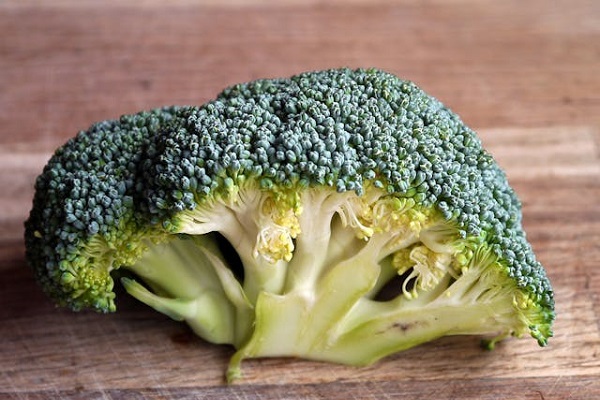Words: Team THINKWELLNESS360
Broccoli, a form of cabbage, of the mustard family [Brassicaceae], according to Encyclopaedia Britannica, is grown for its edible flower buds and stalk. It is native to the eastern Mediterranean and Asia Minor. Sprouting broccoli was cultivated in Italy in ancient Roman times. It was introduced to England and America in the 1700s. High in dietary fibre and a number of vitamins and minerals, including potassium, folic acid, and vitamins A, C, and K, broccoli is a nutritious vegetable. It can be eaten fresh, or cooked. Fresh broccoli should be dark green in colour, with firm stalks and compact bud clusters.
Broccoli is everyone’s favourite vegetable — when one is fond of it. The vegetable is mostly used in veggie and salad preparations, primarily because it is rich in dietary fibre, vitamins, minerals, and antioxidants with proven health benefits. It is also one of our low calorie vegetables. 100gm of broccoli, for instance, provides just 34 calories.
Fresh broccoli is a storehouse of several phytonutrients, such as thiocyanates, indoles, sulphuraphane, isothiocyanates and flavonoids, like beta-carotene cryptoxanthin, lutein, and zeaxanthin.
Health Benefits
Cancer prevention. Broccoli, like other cruciferous vegetables such as cauliflower, Brussels sprouts and cabbage, has cancer-fighting, immune-boosting properties
Cholesterol reduction. Broccoli provides special cholesterol-lowering benefits, if you cook it by steaming. This is because the fibre-related components in broccoli bind well with bile acids in the digestive system when they are steamed. It also gets easy for bile acids to be excreted; the result is lower cholesterol levels
Bone health. Broccoli has high levels of calcium and vitamin K, which are essential for bone health and prevention of osteoporosis
Anti-allergy and anti-inflammatory. Broccoli has a strong combination of vitamin A [in the form of beta-carotene] and vitamin K. It is a particularly rich source of a flavonoid called kaempferol. Recent research has shown that the flavonoid has the ability to reduce the impact of allergy-related substances on our body. The kaempferol connection also explains the unique anti-inflammatory benefits of broccoli. Broccoli has significant amounts of omega-3 fatty acids, what with their great anti-inflammatory properties
Folate impact. Fresh heads of broccoli are an excellent source of folates. They contain about 63µg/100gm of folates. Studies have shown that consumption of fresh vegetables, like broccoli, and fruits rich in folates during preconception and pregnancy, helps prevent neural tube defects [birth defects of the brain, spine, or spinal cord] in the offspring
Heart health. The anti-inflammatory properties of sulphoraphane, one of the isothiocyanates [ITCs] in broccoli, may prevent [or, also reverse] some of the damage to blood vessel linings caused by inflammation [owing to chronic, high blood sugar levels]
Powerful antioxidant. Broccoli is one of the most concentrated sources of vitamin C — including flavonoids necessary for vitamin C to be recycled effectively. Broccoli also has carotenoids — lutein, zeaxanthin and beta-carotene, all powerful antioxidants
Diet aid. Broccoli is a good carb, high in fibre — it aids us in digestion, prevents constipation, maintains low blood sugar and curbs overeating
Detoxification. Broccoli has a strong, positive impact on our body’s detoxification system.
Selection, Storage & Cooking
Fresh broccoli is available around the year. It is important to select fresh, bright, compact, and firm textured flower heads with rich flavour. Avoid buying broccoli with over-matured florets, featuring yellow flower buds, excessive branches and hollow stem. Whenever possible, go for organic farm produce to get maximum health benefits.
For cooking purposes, begin with rinsing flower heads and dipping them upside down in salt water for up to 30 minutes and washing them in running cold water — this will remove pesticide residue and dirt. Let them sit for a few minutes before cooking. This will enhance their health-promoting benefits.
Remember that overcooked broccoli becomes soft and mushy — this indicates that the vegetable has lost its nutrients and flavour.
Eat broccoli while they are fresh. Otherwise, place them in the refrigerator, wrapped in a zip pouch for a few days.

